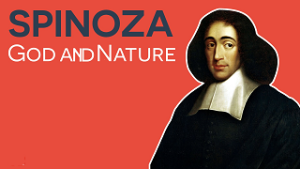
Arquivo para March 2nd, 2017
The Nature in Spinoza
Baruch de Spinoza (or Espinosa as some want) (1632-1677) was a Dutch philosopher of  Portuguese descent (not Portuguese as others want).
Portuguese descent (not Portuguese as others want).
He said that everything is governed by a necessity of absolute logic, that nothing happens by chance in the physical world, so everything that happens is a manifestation of the immutable nature of God, therefore it is God’s will, despite being excommunicated by Jews and Christians .
But the main reason for his excommunication was a kind of pantheism, although today more and more the church and many people are reviewing the “anthropocentric” view we have of nature.
His rationalism, different from that of Descartes and close to Leibniz who, as he was monist, can be expressed thus: “The whole Nature is a single individual whose parts, that is, all bodies, vary in infinite ways without any change of the individual in your totality”. (Idem, Prop. XIII, escoli, L. II, p. 155).
The problem of the Cartesian religious and rationalist egoics is that he saw nature as intelligent, he thinks and this thinking is the next essence of God, here is the origin of the accusation against him of pantheism, but it starts from an unquestionable principle for the Believers, and in a way reasonable for a reason that proposes universal, all part of the One, which for him was God, but if we think only in the universe, there is a nature one, and from there comes everything.
So whatever the way we think and analyze nature, even as the extended rex that Descartes wanted, the act of thinking or any other attribute, finds only some logical order if there is a single union of causes, one reality: this reality is The One, as they want agnostics, or even God whatever religion.
On the necessity of the existence of God, Spinoza wrote: “From the necessity of the divine nature infinite things may result in an infinite number of ways, that is, everything that can fall under a divine intellect.” (Spinoza, Ethics, Prop. XVI, p.100).
With this reasoning, Spinoza comes to the conclusion that it is love of God that must occupy the first place in the mind of man, I say this way: ‘”There is nothing in nature that is contrary to this intellectual love, in other words, that can to destroy”. (Idem, Prop. XXXVII, L. V, p.303).
He have any problems, but is necessary to read his thing in his time.
SPINOSA, Baruch. Ethics, Political Treatise. São Paulo: Abril Cultural, 1978, Col. Pensadores, Brasil.

